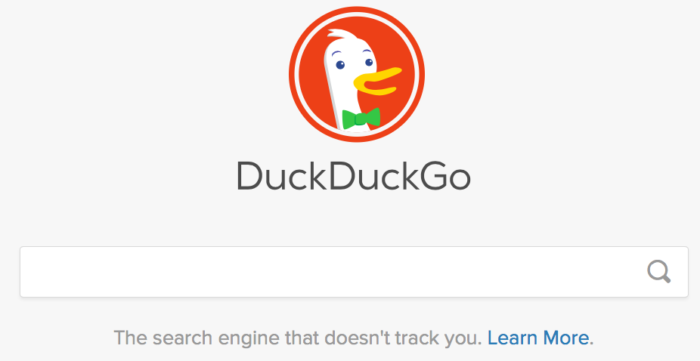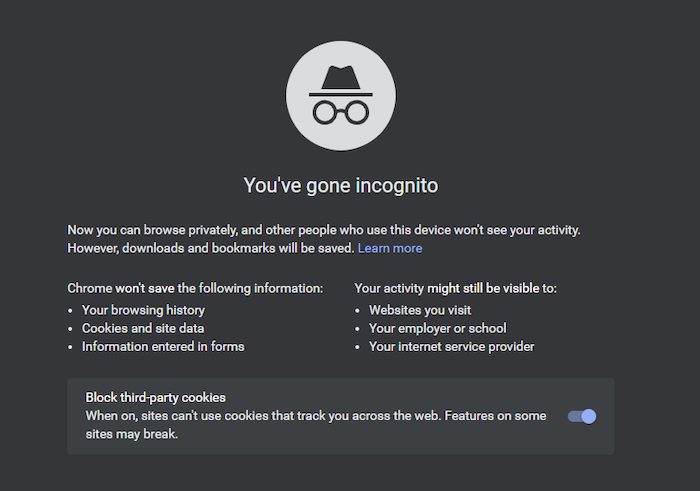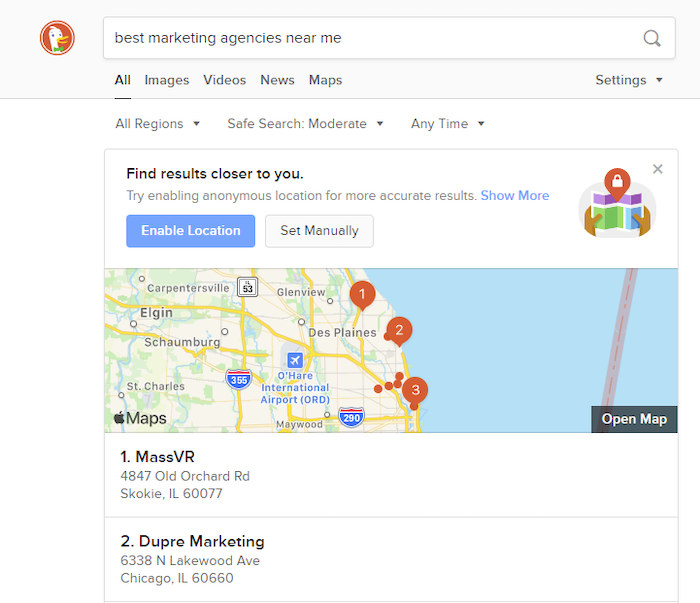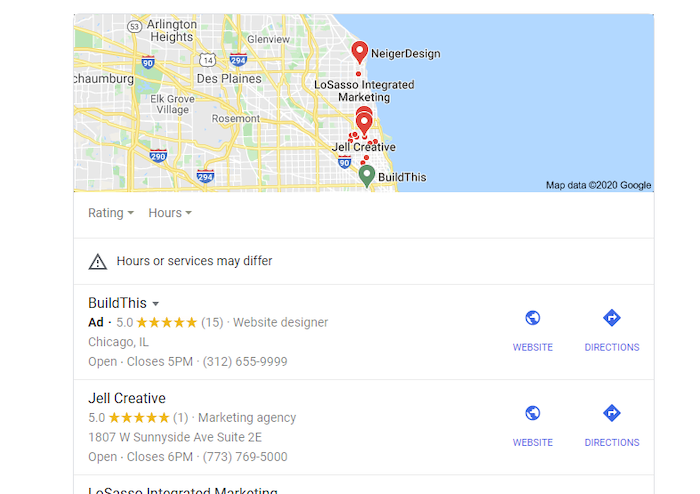How you can enhance your search engine marketing at DuckDuckGo
When you think of search engine optimization, there is a good chance that Google is the only search engine that comes to mind.
This assumption is a huge mistake as the DuckDuckGo search engine has grown in popularity every year.
Google is only part of the SEO puzzle. If you only focus on what Google wants you may be missing a huge chunk of the search market that other search engines like DuckDuckGo and Bing use.
"But," you think, "isn't SEO the same no matter what search engine you're dealing with?"
Not quite.
Here's a look at why alternative search engines like DuckDuckGo are worth your time and what to do if you want to rank outside of Google.
Are alternative search engines like DuckDuckGo worth the effort?
Yes, Google is the number one player when it comes to search engines. According to Statista, Google has a whopping 86% of the search engine market share.
But why should you trust only one platform when it comes to your business?
If you are only dependent on one platform, you run the risk of isolating part of your target audience. That could put your entire company at risk.
Suppose you built your entire SEO strategy on Google and Google alone. What if a tiny change in algorithm (which happens all the time) moves your website down the ranking?
Your business could be at risk.
However, once you've optimized your website for alternative search engines, you are in much better shape.
I've talked at length about several different ways to increase web traffic that aren't search engine focused, and I would wholeheartedly recommend them when it comes to your strategy.
But there are also a few ways to tweak your SEO strategy so that it ranks well in the DuckDuckGo search engine.
What is the DuckDuckGo Search Engine?
In a digital world where your searches often feed straight into your targeted ads, it's no surprise that people are starting to realize how their search history is affecting their privacy.
DuckDuckGo is a privacy-focused search engine that won't track you, integrate it with your social media, store your information, or use your search history to target you with ads.

Essentially, the technology behind DuckDuckGo delivers search results while blocking the trackers that other search engines (like Google) are using.
You can install an extension on your browser (even Chrome), search directly from the DuckDuckGo website, or use privacy browser apps search without being tracked.
As stated in the privacy policy, DuckDuckGo never stores personal information. Instead of collecting data to inform purchases, it's all about simple search.
DuckDuckGo also aims to get you out of what are known as filter bubbles, which can customize your web search experience based on personal preferences and political inclinations.
Who Uses DuckDuckGo?
Because DuckDuckGo does not collect or collect any information about users, it is difficult to find data on who exactly is using the search engine.
In general, DuckDuckGo users are security conscious and interested in technical news and software. They spend an average of 9.5 minutes on websites and have a much lower bounce rate.
This time indicates that DuckDuckGo may attract higher quality searchers to some sites.
Why Should You Care About DuckDuckGo SEO?
When it comes to search engines, several inspire name recognition. From Google to Yahoo to Bing, search engines are usually a matter of personal user preference.
With 1.75% of the market share, DuckDuckGo is not as known or used as Google.
At the same time, 1.75% of the market share is still a large number of users. In comparison, the well-known Yahoo brand holds only 3.41% of the market share. MSN, big business in the past, is now way below DuckDuckGo with just 0.11% of the market share.
While DuckDuckGo isn't a top search engine, it shouldn't be discounted either.
Since DuckDuckGo's biggest draw is that it doesn't track users, the website itself states that they aren't sure how many users they have.
However, they track searches and reportedly see more than 56 million searches a day, and that number has grown rapidly over the past few years.
As mentioned above, these searchers also stay on sites longer and have a lower bounce rate.
This means that just a few steps to optimize for DuckDuckGo have the potential to attract millions of highly skilled searchers.
DuckDuckGo vs. Google search engines
The main difference between the two search engines is that Google tracks things like IP addresses and search history, while DuckDuckGo doesn't.
However, there are a few other things to keep in mind when it comes to differences between the two search engines (and these can affect how you want to adjust your content for ranking).
- Search engine ads: Google adjusts ads based on your search history, while DuckDuckGo adjusts ads based on the results you're viewing.
- User experience: Google and DuckDuckGo do not differ much in terms of user experience, as they both bring up websites, images, maps, news and video results when searching.
- Search results: Both search engines pull results from different players, but Google has been in the game for a while and tends to show this. DuckDuckGo still delivers high quality results, but these are less intuitive than Google's.
DuckDuckGo also places great emphasis on the ability to overcome the filter bubble used by search engines like Google.
That focus means their results will be based on what you're looking for, rather than what you've seen in the past. This may produce more accurate results for your current intent.
Doesn't Google Incognito follow the same principles?
You may think that Google Incognito is similar to DuckDuckGo, but it is not.
With Google Incognito, Google just clears your browser's search history. Even with Incognito enabled on your device, your activity is not necessarily private.
When you turn on Google Incognito, you'll see a disclaimer letting you know that your work or school may still contain your information.
 Screenshot of Google Chrome's incognito mode
Screenshot of Google Chrome's incognito mode
DuckDuckGo, on the other hand, does not record or store any of your searches or search data.
How to Approach SEO for DuckDuckGo
The DuckDuckGo search engine uses over 400 sources to get results for your search. DuckDuckGo uses crowd-sourced websites, traditional websites, and its own web crawler to look for search results.
Just like optimizing for most search engines, DuckDuckGo allows you to practice good SEO techniques. Quality content, deliberate sourcing, and a great website are things that always make a difference.
When you get closer to Search Engine Optimization for DuckDuckGo, a few things will make the biggest difference:
A website for a good user experience
The whole purpose of the DuckDuckGo search engine is to provide a tracking-free, simple, and intuitive interface that users can use and trust. Hence, it makes sense to consider a well-built, easy-to-use, high quality website with quality content, links, and backlinks as a more trustworthy website.
A good user experience means everything for your website and your business, whether it's fast loading time, intuitive web design, or efficient website navigation.
What is a good user experience with DuckDuckGo? Here are some tips to ensure that your user experience is great:
- Make sure your website is easy to navigate for users on mobile and desktop devices.
- Be careful with popups and other features that can frustrate users.
- Use headings, bullets, and tables to make content scanning easier.
Without a good user experience, your website will take a nosedive in the rankings.
Earn high quality backlinks and add them to your website
Just like with Google, including high quality backlinks in your content and link building, especially for websites with a high domain ranking like the Wall Street Journal, will help rank your website.
Why does it matter? A website that has taken the effort and time to add quality backlinks will replace a website that doesn't seem to be as concerned with link building or its backlink strategy.
DuckDuckGo offers this advice on one of their help pages:
The ranking is somewhat opaque and difficult to identify / communicate on an individual query basis due to the various factors (which change frequently).
However, the best way to get high rankings (on pretty much all search engines) is to get links from good quality websites.
You need to focus on adding quality links and getting quality backlinks if you want to rank well on DuckDuckGo.
The good news is that Google and DuckDuckGo consider your backlinks and links to your website as ranking factors. If you've received high quality links as part of your Google ranking strategy,
You may already have a solid link profile that DuckDuckGo can consider for its SERPs.
Choose keywords carefully
Deliberate keywords are important when it comes to SEO, especially when using constantly evolving platforms like DuckDuckGo. Searching keywords through your content is helpful, but only if it makes sense.
Use tools like Ubersuggest and AnswerThePublic to search for keywords and keyword phrases related to your content. Whenever possible, use these terms in headings and throughout the text.
Just like with Google, you don't want to include keywords. Instead, use them naturally where it makes sense.
When you finally learn the art of embedding keywords in your content in a way that makes it flow well and increase quality, you are on the right track.
Make your location clear
Unlike other search engines like Google, DuckDuckGo doesn't track where users are. So, it's important to make your location clear so that you can rank location-based searches.
Including hyper-local keywords in your content and website is required if you want to appear in search results. (And you should do that anyway. Google users don't want to have to search for your address either.)
For example, DuckDuckGo won't get as accurate results from a query like "Best Marketing Agencies Near Me".
Here are the results from DuckDuckGo for that exact result:
 A local SEO example from DuckDuckGo
A local SEO example from DuckDuckGo
You understood the general area correctly, but not exactly. Google, on the other hand, hits it straight on the nose:
 An example of a local listing from DuckDuckGo
An example of a local listing from DuckDuckGo
This may seem like a bug in the DuckDuckGo algorithm, but it is exactly what customers want. They don't want search engines chasing them.
Keep in mind that for searches near me, DuckDuckGo isn't quite as accurate. However, they display accurate search results from queries such as "Marketing Agencies Dallas Fort Worth" or "Marketing Downtown Dallas".
Local businesses should search for location-specific keywords. For example, including the neighborhood, city area, and even the area code in your content can help your website rank up in local searches on DuckDuckGo.
Focus elsewhere too
Since DuckDuckGo uses over 400 other sources for its search results, make sure that your website is fully optimized for those other sources as well.
The DuckDuckGo crawler finds websites and indexes them itself. However, you can send your website URL directly to them for example Yahoo!
Since you can't submit your URL to DuckDuckGo, you need to make sure you are visible elsewhere on the web if you want to rank well. You need content-relevant websites like AskDifferent, Urban Dictionary, and Word of the Day if you want to rank well on DuckDuckGo.
Conclusion
When it comes to doing well in business, you've likely heard the same advice over and over again: never rely on a stream of income, a business method, or a way to get things done.
This advice also applies to optimizing your website. While there are big players in search engines, like the ubiquitous Google, the big players aren't the only ones. When it comes to other search engines like DuckDuckGo, you can lose revenue streams just optimizing for Google.
On another point, SEO is pretty easy once you get the hang of it, and it continues to drive results. No search engine is completely reinventing the wheel when it comes to SEO, and that includes DuckDuckGo. You may see impressive new growth if you make a few changes and expand your search engine worldview.
Have you focused on optimizing your website for alternative search engines like DuckDuckGo? Let us know in the comments!
